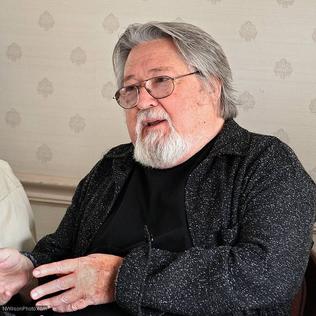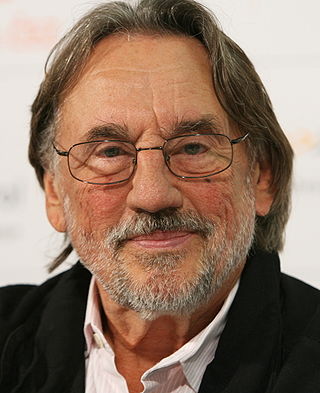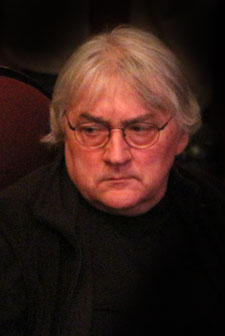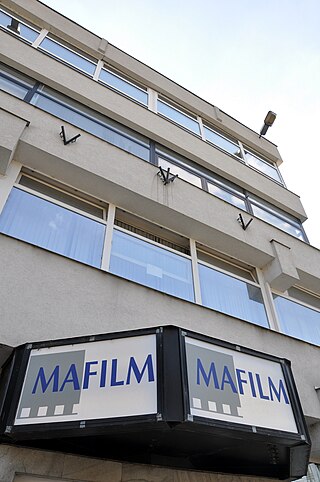
István Szabó is a Hungarian film director, screenwriter, and opera director.

László KovácsASC was a Hungarian-American cinematographer who was influential in the development of American New Wave films in the 1970s, collaborating with directors including Peter Bogdanovich, Richard Rush, Dennis Hopper, Norman Jewison, and Martin Scorsese. Known for his work on Easy Rider (1969) and Five Easy Pieces (1970), Kovács was the recipient of numerous awards, including three Lifetime Achievement Awards. He was an active member of the American Society of Cinematographers and was a member of the organization's board of directors.

Vilmos Zsigmond was a Hungarian-American cinematographer. His work in cinematography helped shape the look of American movies in the 1970s, making him one of the leading figures in the American New Wave movement.

Tibor Szemző is a Hungarian composer, performer, media artist. His pieces often include spoken texts, film and other media. He creates installations and composes music for his own and others’ films. Ever since the beginning of his career, he has been performing actively and widely in Hungary and abroad as well.

Lajos Koltai, ASC, HSC, is a Hungarian cinematographer and film director best known for his work with legendary Hungarian director István Szabó, and Italian filmmaker Giuseppe Tornatore. He was nominated for an Academy Award in 2000 for his work on the film Malèna.

Miklós Jancsó was a Hungarian film director and screenwriter.

Péter Forgács is a Hungarian media artist and independent filmmaker. He is best known for his "Private Hungary" series of award winning films based on home movies from the 1930s and 1960s, which document ordinary lives that were soon to be ruptured by an extraordinary historical trauma that occurs off screen.
Dániel Garas is a Hungarian cinematographer, and director of photography. He graduated from the Hungarian University of Art and Design, Budapest as a photographer and at the Academy of Drama and Film, Budapest as a cinematographer.

The Academy of Drama and Film in Budapest is an educational institution founded in 1865 in Budapest, Hungary. It became a university in 2000 and the name was changed to University of Theatre and Film Arts.

Vilmos Kondor is the name of a successful Hungarian author. He's been dubbed as "the creator of Hungarian crime fiction".

No Subtitles Necessary: Laszlo & Vilmos is a 2008 American documentary film written and directed by James Chressanthis.

Klaudia Kovács is a Hungarian film and theater director, known for her documentary Torn from the Flag.
Gyula Pados is a Hungarian cinematographer. He is best known for his collaborations with director Wes Ball on the films Maze Runner: The Scorch Trials, Maze Runner: The Death Cure, and Kingdom of the Planet of the Apes.

Mafilm was established in 1948. It has been the largest and most significant film studio in Hungary and a strategic base for the Hungarian film industry. Mafilm's history has seen days of glory, just as it has survived severe agonies. The roots of its birth go back to Kolozsvár, and its ancestors include Europe's third-largest silent film factory. Ever since Korda Sándor founded the predecessor of Mafilm, film production has been going on uninterrupted. The importance of the place is also enhanced by the fact that there are almost no Hungarian filmmakers who have not learned the basics of film profession here. Mafilm's history with its predecessors covers more than 100 years of Hungarian film history.

Global Cinematography Institute (GCI) is a film school that teaches new emerging technologies and concepts in the field of cinematography. Founded by Yuri Neyman, ASC and Vilmos Zsigmond, ASC, the Global Cinematography Institute aims to prepare filmmakers to take advantage of on-going advances in digital and virtual cinematography technologies through a curriculum known as Expanded Cinematography.

Yuri Neyman, A.S.C. is a Russian-American cinematographer, educator and inventor.

Gábor Szabó, HSC is a Hungarian cinematographer.

Anna Czóbel was a Hungarian cinematographer who worked for Magyar Televízió. She was a recipient of the Meritorious Artist Award in 1975. She is an Honorary Member of the Hungarian Society of Cinematographers.















